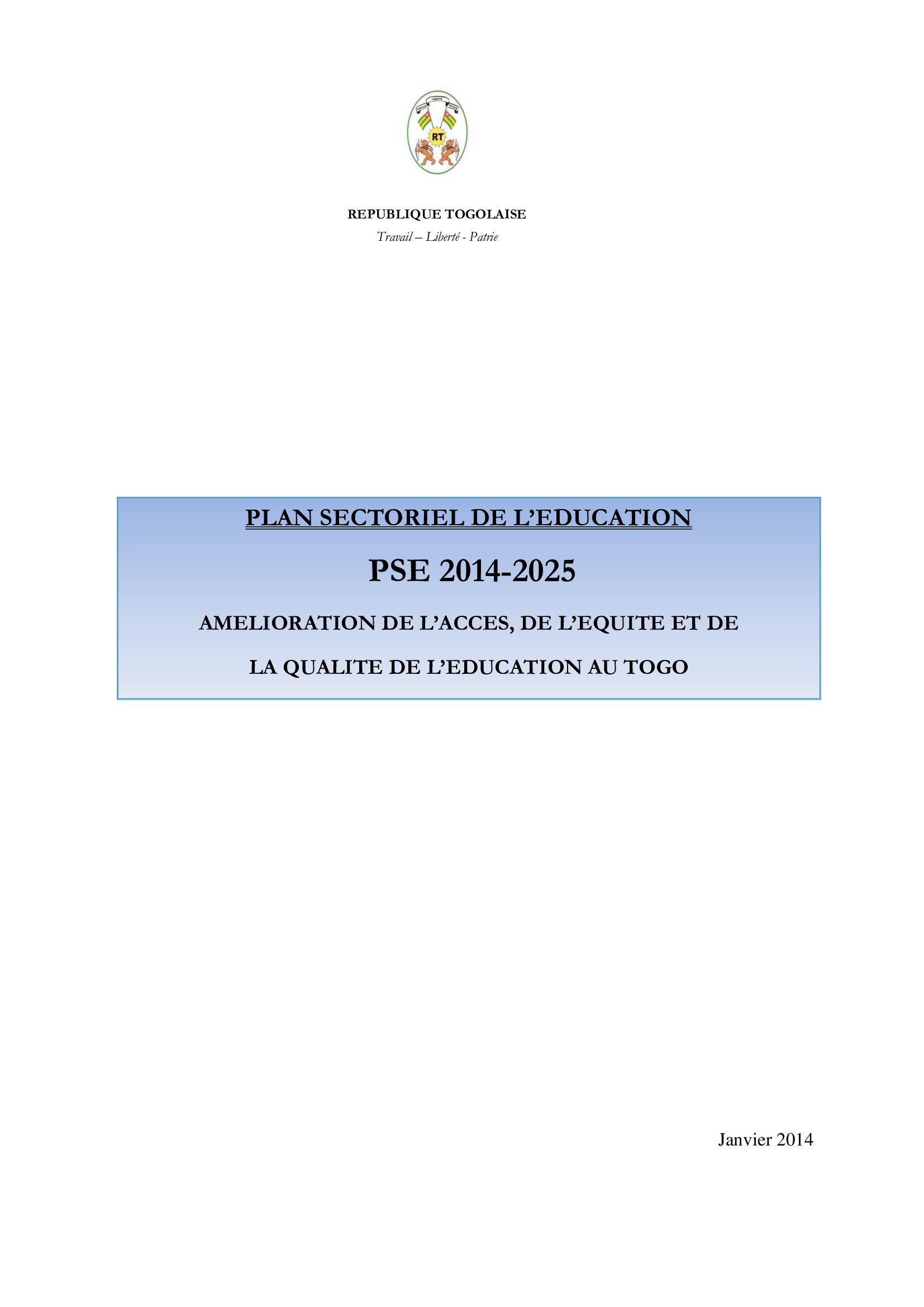While crises in Togo have hindered education progress, the government has continued to commit to developing effective education strategies. The progress of Togo’s education system entails addressing several challenges. These include low access and equity issues in deprived and rural areas, low secondary schooling completion rates, and low literacy program coverage.
The government’s education strategy 2014-2025 focuses on four key strategies: (i) develop a quality basic education to achieve universal primary education by 2022, (ii) extend preschool coverage in rural and poorer environment, (iii) develop the second cycle of quality secondary, technical, vocational, and higher education courses, and (iv) reduce the illiteracy rate.
The plan spells out four objectives to achieve these strategies:
- Correcting national disparities through attaining universal primary education, increasing completion rates at the primary and junior high levels, and developing a second cycle of secondary education, technical and vocational training, and higher education that aligns with job market needs,
- Improving the effectiveness and quality of education services by improving internal efficiency,
- Developing effective partnerships by opening up dialogue with civil society, involving unions and communities in the decision-making process, and increasing parent participation in school management.
- Improving the management and governance of the education system by implementing a reliable information system, decentralizing management, and increasing accountability and transparency.
Togo’s education sector plan outlines several guiding principles underlying the chosen actions. These include reducing disparities and inequity, stimulating demand, liberalizing provision of education, and promoting a culture of excellence.
The plan spells out four objectives to achieve these strategies:
- Correcting national disparities through attaining universal primary education, increasing completion rates at the primary and junior high levels, and developing a second cycle of secondary education, technical and vocational training, and higher education that aligns with job market needs,
- Improving the effectiveness and quality of education services by improving internal efficiency,
- Developing effective partnerships by opening up dialogue with civil society, involving unions and communities in the decision-making process, and increasing parent participation in school management.
- Improving the management and governance of the education system by implementing a reliable information system, decentralizing management, and increasing accountability and transparency.
Togo’s education sector plan outlines several guiding principles underlying the chosen actions. These include reducing disparities and inequity, stimulating demand, liberalizing provision of education, and promoting a culture of excellence.


